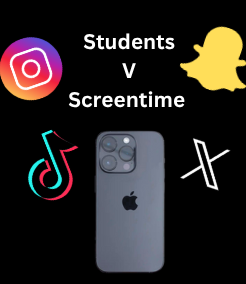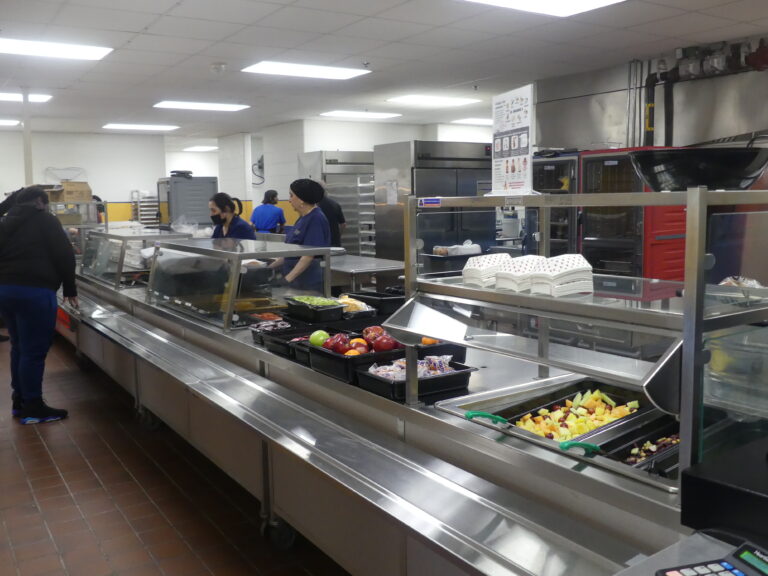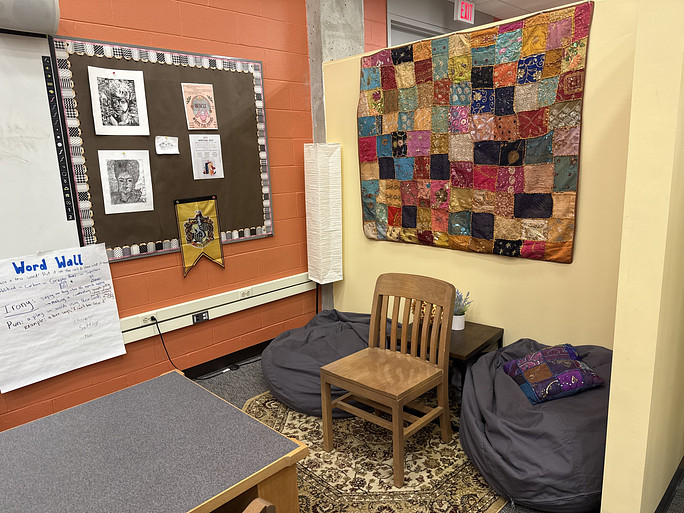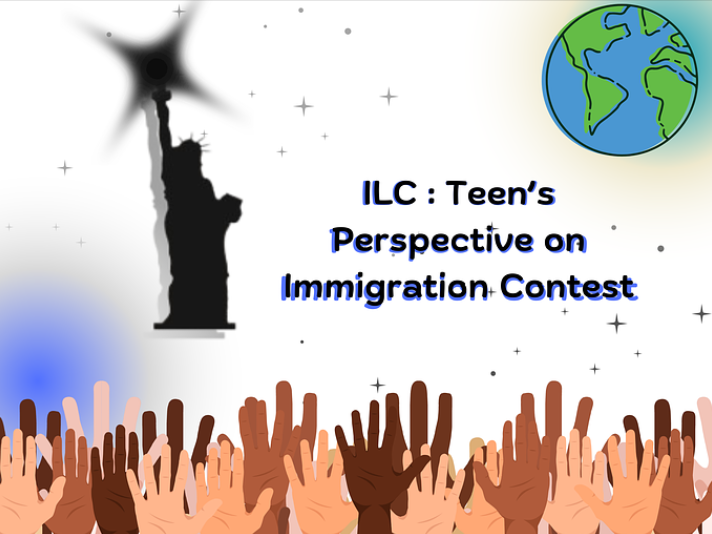By NICK BRAMANTE and ANDREW COGLIANO
The government shutdown may seem scary to some, but why? There are no zombies dragging themselves down the streets of our nation’s capital. There are no government officials being fired from their positions without rhyme or reason. And there is certainly no shutdown of the military or postal service. So why are people so afraid of an event that they know next to nothing about?
The answer lies in the blatant fact that many Americans do not know the actual cause of the shutdown, and instead are lingering on the word “shutdown.” Yes, the government is in a state of nationwide shutdown, but this has happened before.
President Ronald Reagan was in office when the government was in this same state over six times. The core cause of the shutdown lies in Washington, D.C, where the feud over the Affordable Care Act (“Obamacare”), has reached epic proportions.

At the time of the shutdown, the House was controlled by the Republican party, whose influential Tea Party faction is wholly opposed to the funding and overall existence of Obamacare. The Senate, however, is controlled by the opposing Democrats.
The issue of the federal budget has also become a problem, because every budget the Senate tried to pass always gave funding to Obamacare. The next step for the budget would be to move into the House for approval, which it could not find amidst angry Republicans.
The rejected budget bounced back to the Senate, whose job it was to regroup and form a new federal spending plan before the fiscal year ended on Sept. 30, 2013. The Republicans remained vigilant, refusing to pass any budget until Obamacare had met its end.
Unfortunately, the two warring parties could not find common ground, before the year ended at the stroke of midnight, plunging the country into a period of governmental shutdown.
The next question raised by this event is, simply, “what happens now?” The term “government shutdown” does sound rather intimidating, but the actual effect is much less apocalyptic. Many national parks and monuments will remain closed until the government reopens its doors, including Yellowstone National Park, Everglades National Park and multiple war memorials.
Angry veterans have taken to the streets and, in an act of defiance, set up camp around their monuments, refusing to leave until justice is served. During the 1995 shutdown, many memorials remained open to the general public, which begs the question of “why?” One Washington, D.C. official reportedly said, “it’s a government shutdown, what do you expect?” when questioned about the closed monuments and memorials surrounding the capital.

Another effect is the furloughing of federal workers who are a part of services deemed “non-essential.” Furloughing is the temporary layoff of workers, presumably until the government recovers. Over the course of the week, however, the American Federation of Government Employees has argued that this type of furlough (known as an “emergency furlough) is more harmful than helpful.
Of the estimated 800,000 workers furloughed, many are just now returning to their jobs, under the defense that their unemployment will cause “some kind of economic disruption,” according to Nick Schwellenbach, senior fiscal policy analyst for Center for Effective Government. Unfortunately, without a federal budget to rely on, many of those who use Obamacare have now found themselves without health care and the coverages it includes.
So, of course, the main thought on most people’s minds is “This is dumb.” But the better thought is, why is this actually “dumb?” For starters, people should consider exactly what government is shutting down.
This isn’t an underdeveloped system of government, or a failing plan that is on the brink of repeal. This is the United States government, which was built on the foundation of the main idea of liberty. Our ancestors were able to take this single idea and build it into a very intricate system of government that is effective in massive use with millions of people, forged precisely so that no one branch in the government has too much power over another.
This system was edited numerous times, and has survived the test of time for over 200 years. Yet it still seems that when there’s a problem, instead of fixing it, we just shut down the whole government! Maybe if the shutdown actually solved the problem in some way, shape or form, it would be acceptable.
However, the shutdown has accomplished only a few things: causing millions of dollars in loss for the U.S., making everyone complain about the government on social networks and the closing of all the national parks. The worst part of it all is that the shutdown itself was not caused by a massive issue, riots in the streets or some revolution. It was caused by the leaders that we, the people, elected to represent us.
So far, these leaders have done just the opposite. Never mind pointing fingers at who to blame, the fact is that the leaders of our national government are acting as if this is a mock government run by third graders. It’s just a sad fact that our government is really only as good as our leaders are willing to let it be.
Another extremely important factor in this shutdown is who it actually affects. For starters, it does not directly affect those who actually caused it. The House of Representatives is still getting paid, as are all the other federal figures that could actually solve this problem.
Now that this is cleared, lets move on to who doesn’t get paid. Around 800,000 federal employees don’t, and they may not even receive back pay for the time they missed. Also, around 3.6 million veterans, may not receive any economic benefits if the shutdown proves longer than three weeks.
Among the others on the affected list, we have just about anyone that eats food in the U.S.,as inspections on food must be cut back massively. We also have Americans with disabilities and children from low-income families, whose programs in education and benefits could be cut short, or even ended. Around nine million mothers and expectant mothers are also at risk, as they will not receive nutritional assistance from the Department of Agriculture’s Women, Infants, and Children (WIC) program. Lastly, just about anyone who gets flu vaccinations will not be able to get them: the Center for Disease Control (CDC) is shut down. Not a big concern of course, it’s only one of the most important buildings within the U.S. infrastructure, which fights diseases that no one, ever, wants to spread or get out.
After two weeks of shut down, literally everyone in the U.S. will be affected, as it will send the U.S. into another official recession. This shutdown benefits literally no one, and the longer it lasts, the more problems will begin to pile up.
This brings us to our final point: the problem with the government today as a whole. The problem is both simple and complex. The problem is complex, as it runs through the whole federal government, and is not something easily fixed or replaced. The problem is simple because the problem, for the most part, is the people that we have elected to fill our positions of power in the U.S. Our system of government has proved to work and most likely would continue to work, if people let it.

The U.S gets so much backlash from the global community about corruption and problems within the government solely because it is now, sadly, the truth. People talk about problems in the government like it’s history, but as much as we have gone forward, we have simultaneously taken a step back.
The reason the U.S. has made it this far is because we have had great leaders that believed in doing great things. Leaders that listened to the people and responded to them. Leaders who fixed something when it was broken rather than threw it away. The U.S. is far from perfect, but it can be much closer if we start to use a very simple skill we have: common sense.
Let’s not vote for whoever is in our political party, or looks good or whoever is cool. Let’s vote for the candidates that make sense and follow through with what they say. Let’s vote for the men and women that keep their promises or die trying. Let’s vote for people who can make being “American” something to be prouder of than anyone in this generation ever has. In short, let’s just use that piece of gray matter between our ears, put prejudice aside and make sure the people out there who can fix our government have the power to do so.
Or else: we may have to soon throw it away rather than fix it.




